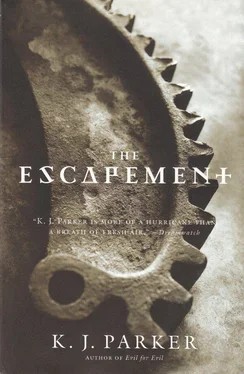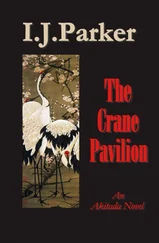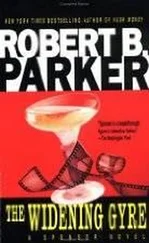K Parker - The Escapement
Здесь есть возможность читать онлайн «K Parker - The Escapement» весь текст электронной книги совершенно бесплатно (целиком полную версию без сокращений). В некоторых случаях можно слушать аудио, скачать через торрент в формате fb2 и присутствует краткое содержание. Жанр: Фэнтези, на английском языке. Описание произведения, (предисловие) а так же отзывы посетителей доступны на портале библиотеки ЛибКат.
- Название:The Escapement
- Автор:
- Жанр:
- Год:неизвестен
- ISBN:нет данных
- Рейтинг книги:4 / 5. Голосов: 1
-
Избранное:Добавить в избранное
- Отзывы:
-
Ваша оценка:
- 80
- 1
- 2
- 3
- 4
- 5
The Escapement: краткое содержание, описание и аннотация
Предлагаем к чтению аннотацию, описание, краткое содержание или предисловие (зависит от того, что написал сам автор книги «The Escapement»). Если вы не нашли необходимую информацию о книге — напишите в комментариях, мы постараемся отыскать её.
The Escapement — читать онлайн бесплатно полную книгу (весь текст) целиком
Ниже представлен текст книги, разбитый по страницам. Система сохранения места последней прочитанной страницы, позволяет с удобством читать онлайн бесплатно книгу «The Escapement», без необходимости каждый раз заново искать на чём Вы остановились. Поставьте закладку, и сможете в любой момент перейти на страницу, на которой закончили чтение.
Интервал:
Закладка:
He had to have a new coat. This one was worn out, useless. She'd have to steal one from her husband-shouldn't be a problem, she could say that she was sick to death of seeing him in that tatty old thing, so she'd thrown it out, given it to a beggar…
(He grinned angrily. That'd be no less than the truth.)
The straw he lay on was filthy, too. Of course, straw was a problem, a luxury the Republic couldn't afford, now that all the carts were being used to carry grain and flour for the coming siege. That didn't alter the fact that it stank and was starting to go black, because of the damp. It was all intolerable, every wretched detail. She'd have to find him somewhere else.
Worst of all, needless to say, was not knowing what was going on. All he knew was what he could figure out from what he'd seen in the streets, when he'd felt brave enough to venture outside. Constant traffic, of course, all the grain carts blocking every thoroughfare in the City-that was the fault of the highways superintendent at the prefecture. He tried to remember the man's name, but he couldn't, though he could dimly picture a short, plump man with a big moustache. Whoever he was, he wasn't doing his job very well. In any event, the gridlocked traffic told him that they were still getting in supplies; so the enemy hadn't taken Lonazep (it would have been the first thing he'd have done) or cut the road to the coast. Since they weren't fools, or at any rate the Vadani duke was no fool, he didn't know enough about the leaders of the savages to form an opinion, the logical inference was that they hadn't taken steps to cut the City's supply lines because they weren't in a position to do so. And that, of course, could mean any one of many things. That aside, all the factories had moved from four to three shifts. He couldn't approve of that. Lengthening shifts was all very well, but it was a proven fact that working men too hard always led to a slump in productivity. So, whoever had ordered the shifts to be cut either didn't understand simple management, or else needed to give the impression he was doing something, even if he knew it'd be counterproductive. Since that was the more likely explanation, it suggested that things weren't going well for the new regime. He smiled at that, but it worried him. Even though they were his enemies, he was relying on them to save the City, just as everybody else was. Didn't the morons realise they simply couldn't afford to make mistakes?
He heard footsteps, and felt his stomach twist with instinctive terror; but it was only her, finally.
"You're late," he grumbled. "I thought you weren't coming."
She was wearing a scarf over her hair; it was drenched, so presumably it had started raining again. She had the child with her. "I thought I told you-"
"I told him I had to take Moritsa to the doctor," she snapped. "It was the only way I could get out of the house at this time of night."
He scowled at her; stupid woman. Talking like that in front of the child, bringing it here. Didn't she realise that the child now knew where he was? Naturally she'd have made it promise not to tell anybody, but children couldn't be relied on to keep secrets. They told their friends at school: I know a secret, my mummy's taking food to a strange man in a stable; and then the friend told its father, who happened to be a corporal in the Watch. Still, he couldn't very well say anything, since he'd already made the point several times. The last thing he could afford was for her to take offence and stop coming.
"You did bring the food, didn't you?" he said.
She took a basket from the little girl's hand and gave it to him. He snatched off the cloth that covered it. "Is this all?"
"It's not easy," she replied defensively. "You wouldn't believe how much prices have gone up lately, and we aren't made of money. I'm just surprised he hasn't noticed we're feeding four instead of three. Usually he goes over the household accounts at least once a week. Just as well he's so busy at work. When he gets home, he's too tired to do anything except flop in a chair."
He wasn't listening. A loaf (a small loaf, and distinctly stale); a knob of cheap yellow cheese; some rather slimy cold chicken, with splodges of cold brown gravy-scraped off her husband's plate after he'd finished, presumably. I'm reduced to eating table scraps, like a dog or a pig. Marvellous. Two soft, waxy store apples; three raw carrots; half a dozen flat scones, blackened round the edges…
"I burned them on purpose," she pointed out, "so I could throw them away. He told me off for being careless and wasting flour and eggs. You can hardly get eggs any more. Some fool's ordered all the chickens in the City slaughtered, because they reckon we can't spare the grain."
He rolled his eyes. Small, stupid, petty things like that were a sure way to ruin morale. "Did you bring anything to drink?" he asked hopefully. "I'm sick to death of rainwater out of dirty barrels."
She handed him a small jug stopped with screwed-up cloth. He sniffed it and pulled a face.
"I can't drink that," he said. "It's gone stale."
"If it wasn't stale, he wouldn't have let me chuck it out," she snapped back at him. "Malt's half a dollar a pound, and that's if you can get it. Pretty soon all we'll have is water."
My heart bleeds, he thought. "It'll have to do, then," he replied sullenly. "Will you come again tomorrow? You can say the kid's still off colour."
She was looking at him, and he didn't need his lifetime of expertise in handling women to interpret that particular expression. She doesn't love me any more, oh well, never mind. At least she's got enough common sense to realise she's stuck with me.
"I'll try," she said. "It's lucky he hardly notices me these days, so long as his food's on the table and the laundry gets done."
The little girl was bored. She was playing with the buckles of her shoes, undoing them and doing them up again. It was annoying to watch, but he decided against saying anything. Idly, he wondered about her; whose daughter she was, not that it mattered very much. He couldn't bring himself to feel anything about her at all; just another pointless complication. But she'd been married to Vaatzes all those years and there'd been no children, then all this had started, and suddenly there was one. Only natural to wonder, though he'd never had the slightest interest in breeding offspring.
"Did you find out about the war, like I asked you?"
She sighed. "He's rushed off his feet building siege engines, that's all I know," she said. "He doesn't like talking about work when he gets home. My friend whose husband works in the paymaster's office said something about some new alliance, but she didn't know any details."
He frowned. "Did she say anything about the Cure Doce?"
"Who?"
He shook his head. "Try and find out more if you can," he said, doing his best not to let his impatience show. "It's vitally important I keep up to date, if I'm ever going to get out of this mess. And then," he added awkwardly, "we can finally be together."
She nodded. It was a curious gesture in the circumstances, like a servant accepting orders without forming any judgement of whether they were good or bad.
"I need another coat," he said. "This one's useless."
"I'll see what I can do," she said.
He took a moment to look at her, something he hadn't done properly in a while. The changes were only very slight, almost too slight to notice or describe: a little thinner around the face, tighter around the mouth and eyes. She looked dried, like stored fruit; the sap drained out in the interests of endurance. But she'd put on a little weight, just enough to spoil the curves and radii of her figure. Her waist had thickened up, her arms were starting to turn podgy where once they'd been rounded and soft. He realised, with the sense of someone noticing he'd forgotten something that used to be important, that they hadn't had sex for-how long was it now, six months? Since Psellus went to Civitas Vadanis-now how could those two facts be at all connected, though clearly they were, somehow. He thought about that. They'd had the opportunity, all these clandestine meetings in dark, secret places, and he had no doubt that she'd have agreed to it if he'd suggested it, because she'd never refused him anything. Did he want to? Not, he decided, in the slightest. Even if he'd still wanted her, found her even remotely attractive, it would be frivolous, a ridiculous indulgence for someone in his position, like a starving man spending his last three quarters on candy floss.
Читать дальшеИнтервал:
Закладка:
Похожие книги на «The Escapement»
Представляем Вашему вниманию похожие книги на «The Escapement» списком для выбора. Мы отобрали схожую по названию и смыслу литературу в надежде предоставить читателям больше вариантов отыскать новые, интересные, ещё непрочитанные произведения.
Обсуждение, отзывы о книге «The Escapement» и просто собственные мнения читателей. Оставьте ваши комментарии, напишите, что Вы думаете о произведении, его смысле или главных героях. Укажите что конкретно понравилось, а что нет, и почему Вы так считаете.












